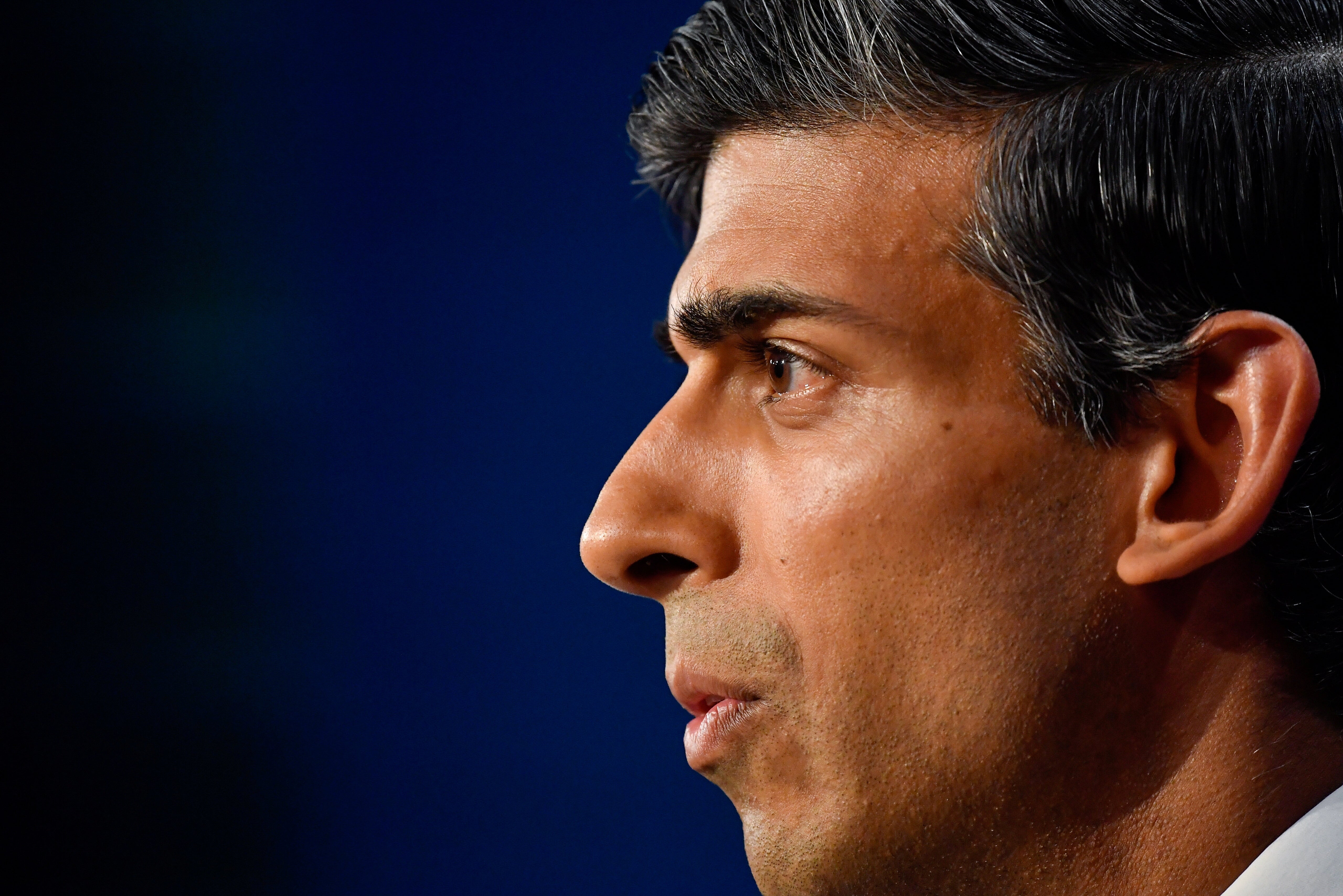Sunak faces last-minute call to extend furlough amid warnings London workers will be hardest hit
Removing support would be ‘devastating for countless families already facing a winter of spiralling bills and cuts to working benefits’

Your support helps us to tell the story
From reproductive rights to climate change to Big Tech, The Independent is on the ground when the story is developing. Whether it's investigating the financials of Elon Musk's pro-Trump PAC or producing our latest documentary, 'The A Word', which shines a light on the American women fighting for reproductive rights, we know how important it is to parse out the facts from the messaging.
At such a critical moment in US history, we need reporters on the ground. Your donation allows us to keep sending journalists to speak to both sides of the story.
The Independent is trusted by Americans across the entire political spectrum. And unlike many other quality news outlets, we choose not to lock Americans out of our reporting and analysis with paywalls. We believe quality journalism should be available to everyone, paid for by those who can afford it.
Your support makes all the difference.Chancellor Rishi Sunak is facing eleventh-hour demands to extend furlough for certain sectors of the economy after the Institute for Fiscal Studies (IFS) warned that workers in London were likely to be hardest hit when the scheme ends today.
The flagship economic policy – introduced at the onset of the pandemic – has supported millions of jobs during the pandemic, originally paying 80 per cent of workers’ wages to a monthly limit of £2,500.
But the closure of the scheme on Thursday has prompted warnings of a “tidal wave” of job losses and the country facing a “coronavirus Black Thursday”.
Mr Sunak, who announced at the Budget in March the scheme would come to an end in the autumn after being wound down over the summer, has previously rejected pleas to extend the state intervention beyond 30 September.
According to the IFS, workers in London are in the “most precarious position”, having been more likely to be furloughed over the summer than other parts of the country.
Coupled with higher rates of redundancy and lower rates of re-employment, the fiscal watchdog said: “These challenges compound to heighten the risk of longer-term unemployment in the capital.”
Publishing new research today, the IFS said employees in the capital accounted for 16 per cent of the redundancies made during the pandemic while 44 per cent of those who lost their jobs found new work within six months – compared with 58 per cent of workers for the rest of the country.
Author of the report, Adam Salisbury, said of the capital: “It is the highest-paid region, and had a considerably higher employment growth between 2007 and 2019 than the national average.
“But despite the protection of the furlough scheme, the pandemic has hit London hard. London had higher-than-average furlough rates this summer, higher redundancies and lower chances of finding new work after redundancy.
The Liberal Democrats have demanded in a letter to Mr Sunak that the scheme, introduced in March 2020, be extended to the 10 sectors hardest hit by the disruption caused by Covid-19, including passenger air transport, travel agencies, musical instrument manufacturers and retail sale via stalls and markets.
Removing the support now, the party argued, would be “devastating for countless families already facing a winter of spiralling bills and cuts to working benefits”.
Christine Jardine, the party’s Treasury spokesperson, said: “The withdrawal of furlough risks having a devastating impact on countless families already facing a winter of soaring energy bills. The government needs to rethink its approach or the country could face a coronavirus Black Thursday.”
“The Liberal Democrats are demanding that furlough is extended for the industries that are being hardest hit by the pandemic, to prevent a tidal wave of job losses in the coming weeks,” she added.
“Thousands of people are relying on furlough are worrying about their livelihoods at a time when the impact of the pandemic is far from over. Supporting them and their families is both the right and responsible thing to do.”
The warning also comes as an analysis of government data from the homelessness charity Crisis suggests that more than 100,000 renters on universal credit are at risk of eviction as ministers prepare to remove the £20-per-week uplift – another key economic support measure introduced at the onset of the pandemic.
Chief executive of Crisis, Jon Sparkes, said: “For many struggling renters this cut could be the final blow that forces them from their homes.
“We know that when people have somewhere stable to live, they are in a better position to find work, build their careers and contribute to the economy as it reopens. Taking this vital lifeline away risks undermining all of this.
“If we are truly serious about levelling up the country and rebuilding our economy so it works for everyone, then the UK government must change course and keep the £20 uplift so people don’t needlessly lose their homes this winter and we have a fighting chance at recovery.”
Join our commenting forum
Join thought-provoking conversations, follow other Independent readers and see their replies
Comments